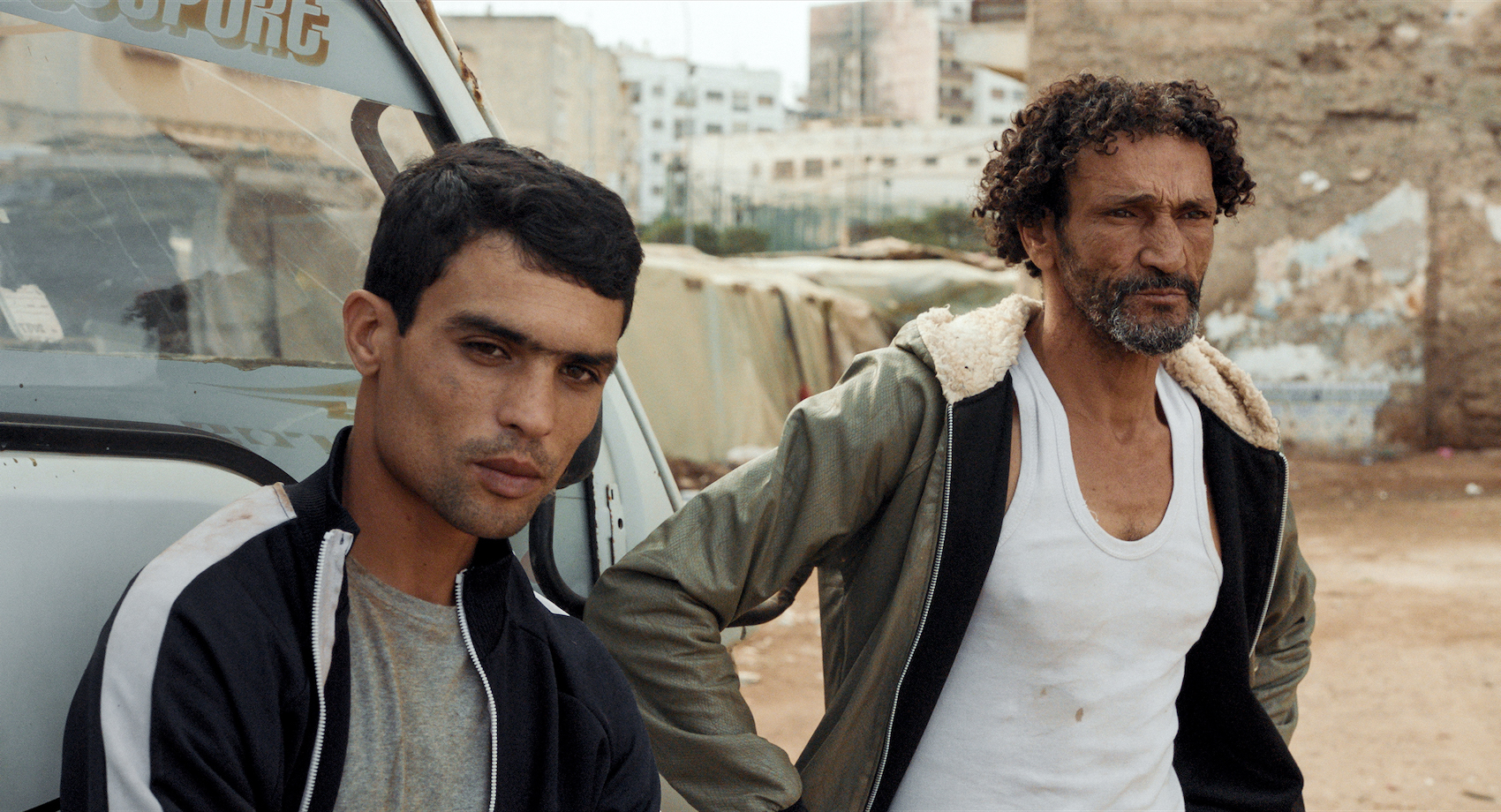For his first feature film Kamal Lazraq brought home the Jury's Prize of Cannes’ Un Certain Regard. Hounds (Les Meutes) takes place in the suburbs of Casablanca, where a father and son live from day to day by carrying out small trafficking jobs for the local mafia. One evening, they are tasked with kidnapping a man. Trapped in a long night, they have no idea what awaits them.
AM: How did you receive the news that your film was selected for Cannes?
KL: We finalized shooting the film not so long ago, we sent an initial version at the end of editing and we received the festival’s announcement of the selection while we were still in the middle of post-production. It was a bit of a race to finish and to be here on time. But it created a good energy and it was a great relief and pride after long hours of work during nighttime shoots in Casablanca with non-professional actors. All was quite intense and complicated but matched with pleasant news.
AM: And why now a feature film after several short films?
KL: For me it was a bit of continuity, I have set up a working method on my two previous short films, a system with non-professional actors and filming in Casablanca in a natural setting. It's something that I I wanted to continue with my feature film and it felt like the natural next step for me.
AM: And how was the preparation phase like?
KL: I wrote the film, I knew most of the settings in which I was filming. The actors I found them quite quickly. It was more in fact during the filming that things evolved because we had to adapt to non-professional actors who sometimes had a different idea of doing certain things, so there was a constant rewriting of the film.
AM: You mentioned that you favor non-professional actors…
KL: It's true that for me, and for the cinema that I want to make, non-professional actors satisfy me. We obtain a strong authenticity when we put in place a system that allows these individuals to perform well because they do not have the same techniques as professional actors.
AM: Explain the father-son relationship in the film
KL: In Morocco, conceptions of father figures and masculinity are very different than in Western cultures. In Morocco, there is great respect towards one’s father, whose words are not to be contested, and there is no room for adolescent rebellion or acting out. When we told the actor who plays the son, “this man will be your father,” a form of deference established itself. The film’s trajectory can be defined as follows: a son who accepts everything from his father when deep down he knows very well that his father makes the wrong decision.
AM: Hounds is not a comedy but has elements of irony…
KL: The film is not a comedy per se; it is very dark, and yet it does include this undercurrent of irony. I also injected a dose of farce as well as a dimension verging on the absurd. In truth, my intention was not to aim for pure comedy or farce, but when you roam the outskirts of Casablanca at night, this farcical dimension is decidedly present: people are often like pure characters playing it up for the gallery. I think that the film’s drollery comes more from this documentary side than from an actual intention on my part to emphasize this dimension. My relationship with Casablanca has greatly influenced my writing.


